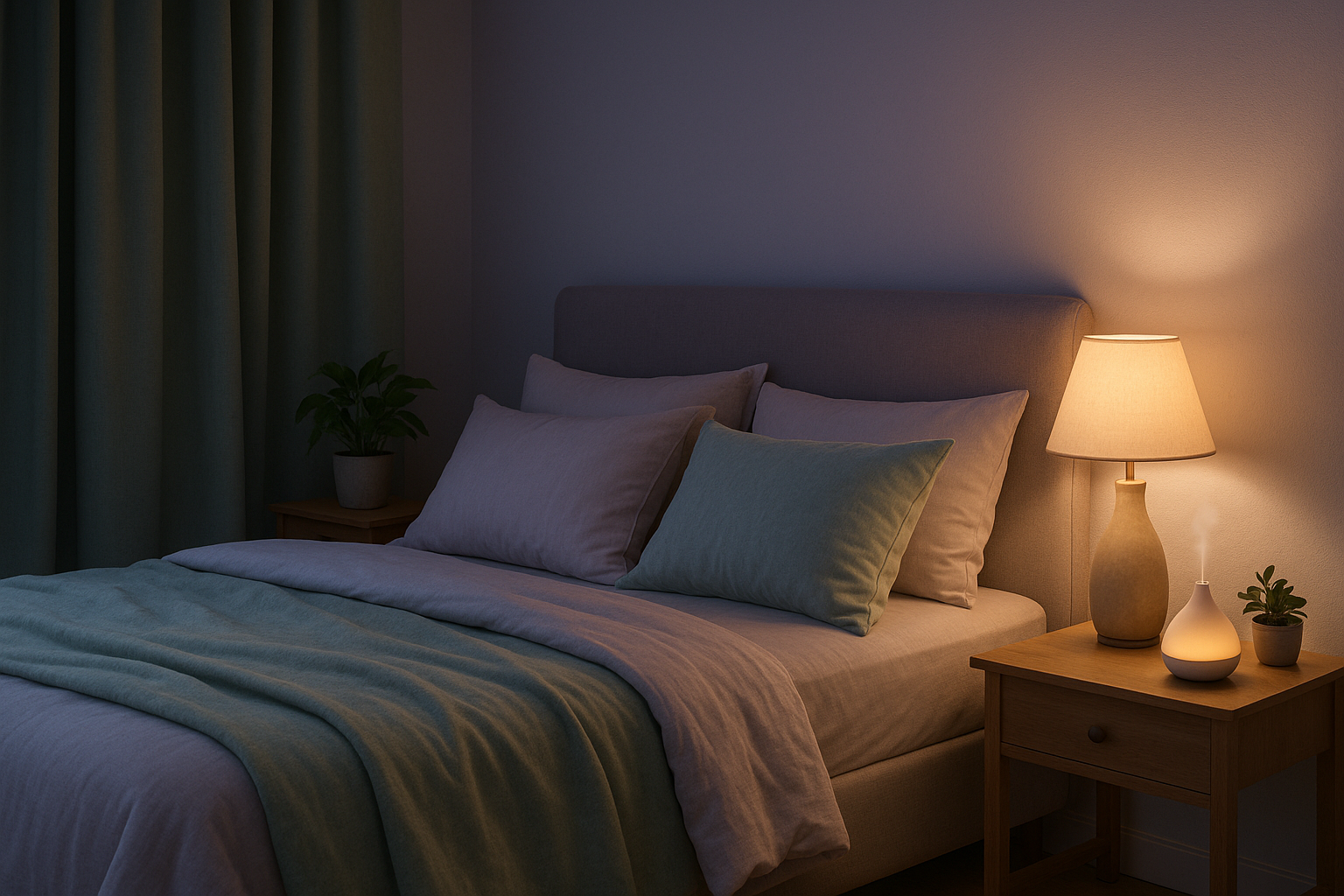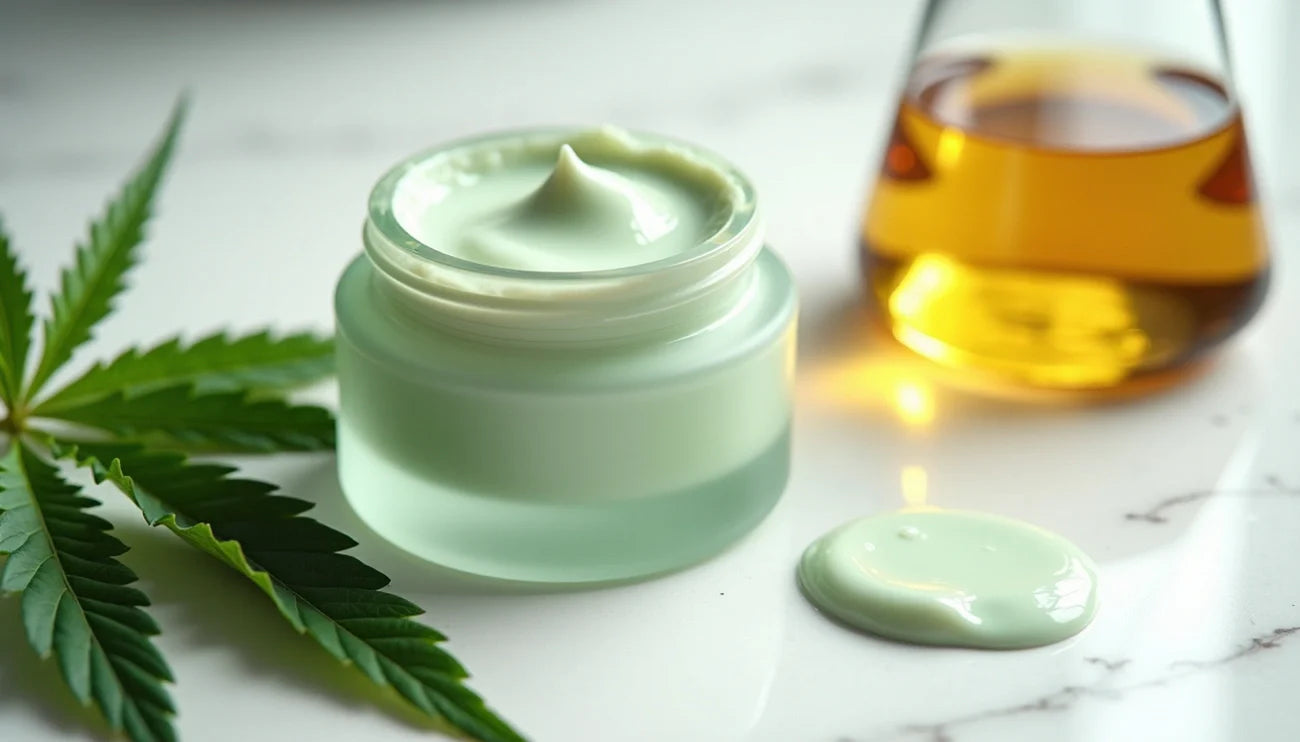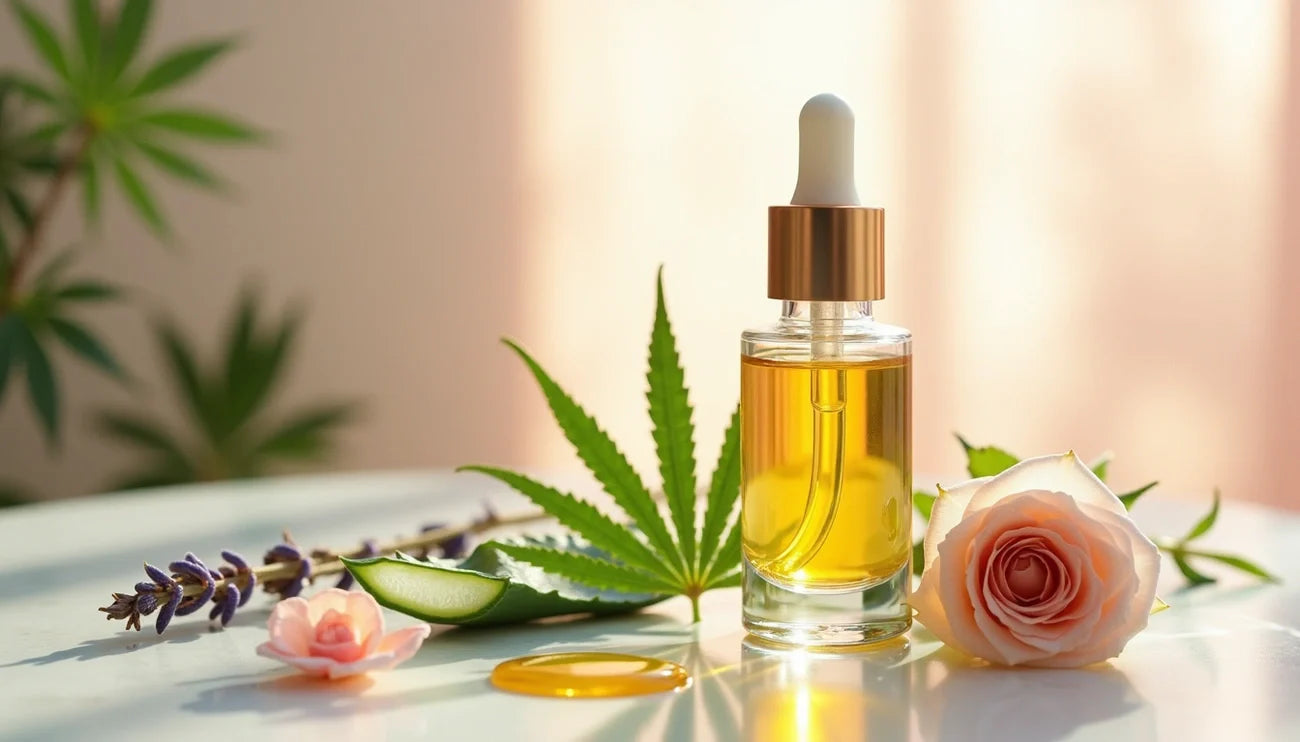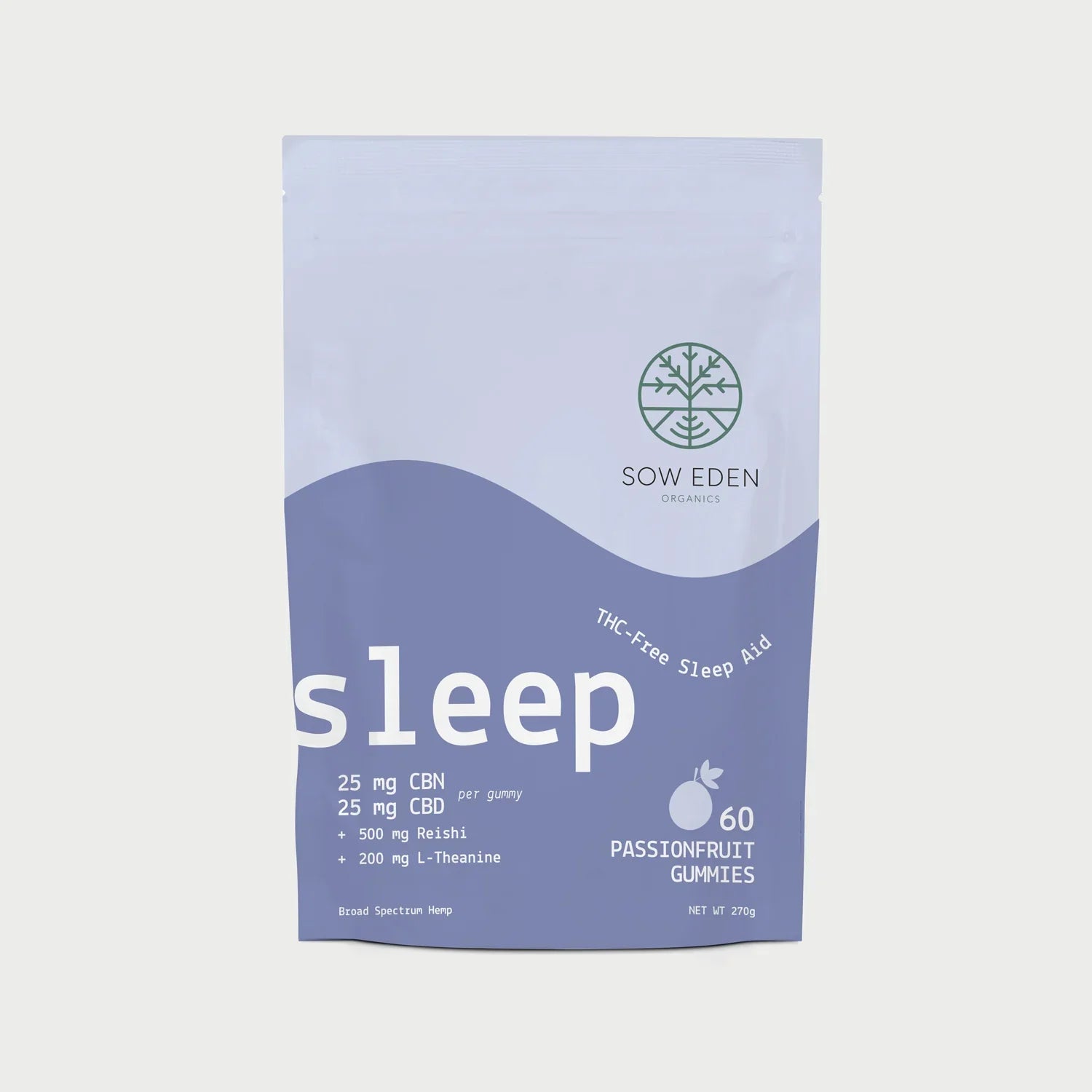Can't sleep well? A look at CBD vs THC for sleep might help you find a natural way to beat those sleepless nights. Research shows 15mg of THC can help you fall asleep faster and make you sleepier. CBD's ability to ease pain and reduce anxiety can make your sleep better too.
The key differences between THC and CBD for sleep deserve attention. CBD comes from hemp or cannabis plants and won't give you that "high" feeling cannabis is known for. THC stands as the main compound that creates the characteristic "high". The science shows THC might make you sleepy by calming your mind and boosting sleep-friendly adenosine. CBD proves useful for better sleep through its effects on alertness.
This piece walks you through these cannabinoids' interaction with your body and their effects on sleep patterns. You'll learn whether using them together might work better, plus key things to think over before trying either one. The growing body of research on natural sleep aids lets you make smart choices about your sleep health.
How CBD and THC interact with the body
Your body and cannabinoids share a complex relationship that starts with a natural signaling network inside you. This relationship helps us understand why CBD and THC affect sleep in different ways.
The endocannabinoid system explained
A complex regulatory network called the endocannabinoid system (ECS) exists in your body. The system works through cannabinoid receptors (CB1 and CB2), endogenous ligands like anandamide (AEA) and 2-arachidonoylglycerol (2-AG), along with enzymes that combine and break down these compounds.
Your brain regions that control memory, cognition, emotion, and sleep contain most CB1 receptors, including the cortex, hippocampus, and basal ganglia. Immune cells contain more CB2 receptors. Your body creates endocannabinoids as needed based on physiological requirements, which lets neurons adjust their signaling precisely.
How THC binds to CB1 receptors
THC, cannabis's psychoactive component, works as a partial agonist at CB1 receptors. This compound attaches to these receptors, especially those on presynaptic terminals of neurons, and sets off a chain of effects.
CB1 receptors reduce calcium influx after activation, which leads to decreased neurotransmitter release. This creates a feedback loop that controls neuronal signaling. Sleep-related brain regions contain CB1 receptors that THC binds to, which might activate cholinergic neurons in the pons and basal forebrain. This could explain why THC helps promote sleep.
Research shows that THC helps people fall asleep faster, wake up less during sleep, get more slow-wave sleep, and experience less REM sleep. These effects usually become less noticeable with continued use.
CBD's indirect influence on brain chemistry
CBD differs from THC because it barely binds to CB1 and CB2 receptors. CBD acts as a negative allosteric modulator of the CB1 receptor and works as an inverse agonist of the CB2 receptor instead.
CBD influences the body through several pathways. The compound stops fatty acid amide hydrolase from breaking down anandamide, which might increase endocannabinoid levels indirectly. It also activates various receptors such as TRPV1 (involved in pain regulation), PPARγ (involved in inflammation), and serotonin receptor 5-HT1A.
Small amounts of CBD might help with sleep, while larger doses could cause sedation. CBD's ability to lower cortisol levels by reducing the activity of the corticotropin-releasing hormone gene might explain this effect.
Comparing CBD vs THC for sleep support
CBD and THC help people sleep better in different ways because of their unique properties. Let's look at how these cannabinoids work differently to promote better sleep.
CBD's calming and alertness-regulating effects
CBD has a calming effect on the nervous system that can help improve sleep quality. Research shows CBD looks promising to treat REM sleep behavior disorder and daytime sleepiness.
Lower doses of CBD decrease REM latency, while higher doses increase it. This relationship to dosage makes CBD versatile enough to address various sleep issues. CBD could help reduce anxiety linked to insomnia - a study found that 80% of people reported lower anxiety levels after taking CBD for a month.
CBD gummies for sleep give you a convenient option that won't make you feel high like THC does.
THC's sedative properties and sleep latency
THC substantially helps reduce the time needed to fall asleep. Studies show THC can decrease sleep latency and boost slow-wave sleep in the short term. Your brain's arousal systems get suppressed by THC, which helps you drift off faster.
THC also cuts down wake time after you fall asleep, so you're less likely to wake up during the night. Research indicates THC's immediate effects include longer total sleep time, which makes it appealing if you have trouble staying asleep.
How each affects sleep cycles differently
These cannabinoids affect sleep architecture in distinct ways:
- THC reduces REM sleep, which can mean fewer dreams
- CBD makes non-REM sleep periods longer
- THC boosts slow-wave sleep at first, but this benefit fades with regular use
So THC might help people with PTSD by reducing nightmares through its ability to suppress REM sleep. CBD, on the other hand, changes sleep oscillations (delta, spindle, ripples) during rest and non-REM sleep.
What studies say about their sleep impact
Research shows higher doses of CBD (160 mg) helped people sleep longer compared to nitrazepam in a crossover study. People who used stronger CBD concentrations said they noticed more relief from insomnia.
The long-term effects of these cannabinoids are quite different. Regular THC use might lead to tolerance, which reduces its sleep benefits. CBD proves safer for long-term use, with people tolerating doses up to 1500 mg/day well.
Can combining CBD and THC improve sleep?
People who care about sleep quality often ask if CBD and THC could work better as a team rather than alone. The science behind mixing these cannabinoids reveals the sort of thing I love about how they interact.
Understanding the entourage effect
The entourage effect shows that cannabis compounds create mutually beneficial results and provide better benefits when used together instead of separately. Scientists first discovered this effect in the late 1990s. They found that cannabis becomes more therapeutically powerful when its natural components interact. This interaction creates more balanced and effective sleep results compared to using either compound by itself.
Full-spectrum vs isolate products
Full-spectrum CBD includes all cannabis plant compounds with small amounts of THC (less than 0.3%), terpenes, and flavonoids. These products help people sleep better because of the entourage effect. CBD isolate, on the other hand, contains 99% pure CBD without other cannabinoids. While isolate doesn't benefit from the entourage effect, higher doses still work well, especially for people sensitive to THC. CBD gummies for sleep in either form can help, but full-spectrum options typically provide better support for deep, uninterrupted sleep.
What research says about combined use
Research shows CBD can boost THC's therapeutic benefits while reducing its psychoactive effects. THC helps people fall asleep faster, and CBD helps them stay asleep longer. The combination tackles multiple sleep problems at once - THC relieves pain while CBD reduces anxiety.
Finding the right balance for your needs
A 1:1 or 2:1 CBD:THC ratio works well for sleep. Some experts recommend a 5:1 CBD:THC ratio as a starting point. The best approach involves starting with small doses and slowly adjusting until you find what works best for you.
Things to consider before using CBD or THC for sleep
You should know a few things before trying CBD or THC to help you sleep better.
Product quality and labeling
Quality products need proper verification. Research shows that CBD products often don't match their labels - 26% contain less CBD than stated, while 43% pack more than what's on the label. Look for products with Certificates of Analysis (COA) from independent labs that verify cannabinoid levels and show there are no contaminants. You might want to try CBD gummies for sleep from companies that share clear details about their products.
Legal status by state
Hemp with less than 0.3% THC is legal federally, but state laws are different. Recreational cannabis was legal in 18 states and DC by 2021, while 37 states allow medical use. Some states like Idaho and Nebraska still ban marijuana-derived CBD whatever its use. Make sure you check your state's rules first.
Talking to a healthcare professional
Your doctor's input is a vital part of the process, especially when you have other medications. CBD might interact with certain prescriptions, and this is especially true for blood thinners. Your healthcare provider can give you advice that fits your health background and sleep issues.
Starting low and adjusting slowly
The golden rule is to start small. CBD users should begin with 2.5-5mg and work their way up if needed. THC users should start with 1.25-2.5mg at bedtime to see how it affects them. This careful approach helps you avoid side effects while finding the right dose for you.
Final Thoughts
CBD and THC have unique properties that can help you make better choices about natural sleep aids. CBD creates a calming effect by working indirectly with the endocannabinoid system. It helps you sleep longer without making you feel high. THC works differently - it acts directly on CB1 receptors to help you fall asleep faster.
These cannabinoids work differently on your sleep patterns. CBD makes your non-REM sleep periods last longer. THC cuts down REM sleep and boosts slow-wave sleep at first. Your specific sleep issues will help determine which option works best for you.
The entourage effect suggests that using these compounds together might work better than using them separately. Products with multiple cannabinoids often work better than pure isolates. Both types can work well based on your sensitivity and priorities.
It's worth mentioning that you should check for Certificates of Analysis from independent labs to ensure product quality. Learn about your state's legal rules since they're different everywhere. A healthcare professional can give you tailored advice based on your situation.
Whatever option you pick, start with small doses to properly gage the effects and find your sweet spot. As scientists learn more, cannabinoids are becoming a promising natural alternative for people looking to improve their sleep naturally.




